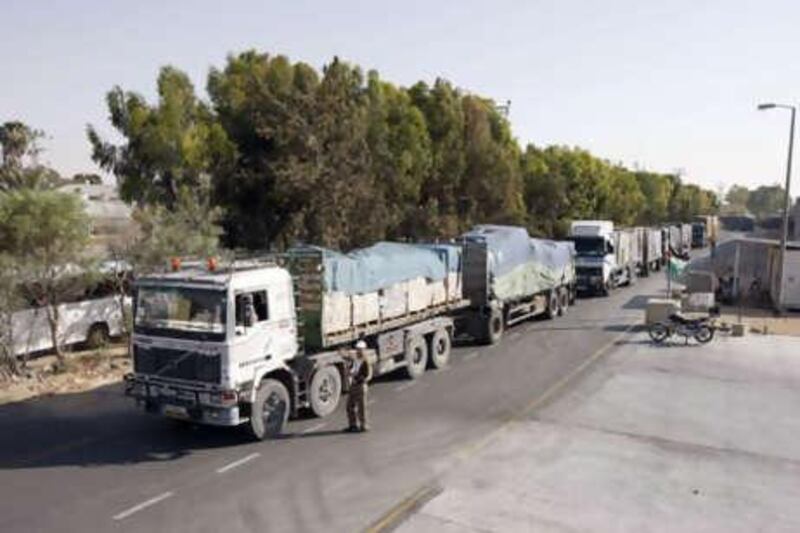Israel has approved a plan to ease its blockade of the Hamas-run Gaza Strip following weeks of international pressure but provided few details on what new goods would be allowed in. Under the plan, Israel would "liberalise the system by which civilian goods enter Gaza (and) expand the inflow of materials for civilian projects that are under international supervision," the government said in a statement. But it also stressed that Israel would "continue existing security procedures to prevent the inflow of weapons and war materiel". The security cabinet decision came in the wake of mounting international calls to ease the four-year blockade of the impoverished Palestinian territory in the wake of a deadly raid on a fleet of aid ships on May 31. The plan is reportedly based on understandings reached in recent days by the prime minister Benjamin Netanyahu and the Middle East Quartet envoy Tony Blair that call for switching from a list of allowed items to a list of banned goods. It would also allow the entry of more building materials for UN-sponsored construction projects. Israel was also reported to have been considering a proposal for stationing EU and Palestinian Authority inspectors at the border to inspect incoming goods, but the plan did not appear to be included in today's decision. Currently thousands of products, some as banal as toilet paper and ginger, are listed by Israel as constituting a "security" risk and prevented from reaching Gaza. The list also includes products such as construction materials, like metal pipes which Israel fears could be used for building rockets, and cement which could be used to build bunkers and tunnels. On Wednesday, Israel allowed eight trucks loaded with kitchen equipment to enter Gaza for the first time since 2006, following recent decisions to allow in snack foods and other household items that were previously banned. Mr Blair had earlier this week told Israel's Haaretz newspaper that the plan would "allow us to keep weapons and weapon materials out of Gaza, but on the other hand to help the Palestinian population there". Mr Blair had negotiated on behalf of the Middle East peace Quartet consisting of the United States, the United Nations, the European Union and Russia. He said the ultimate aim was to eradicate the need for smuggling through a network of tunnels running under Gaza's border with Egypt, through which thousands of goods are brought daily and sold at inflated prices. Mr Netanyahu has insisted, however, that Israel's naval blockade remain in place - a measure he says is crucial for preventing Gaza from "turning into an Iranian port" through which arms would flow freely. Israel has faced mounting calls to lift the blockade following its deadly raid on an aid flotilla trying to run the blockade, in which nine Turkish activists were shot dead by navy seals. It has argued that the closures, imposed when an Israeli soldier was seized by Gaza militants in a deadly June 2006 raid and tightened a year later when Hamas took over, are needed to contain the militant movement. In the cabinet decision Israel said it "expects the international community to work toward the immediate release of Gilad Shalit", now 23 years old, who is believed to be held by Hamas at a secret location in Gaza.
*AFP






